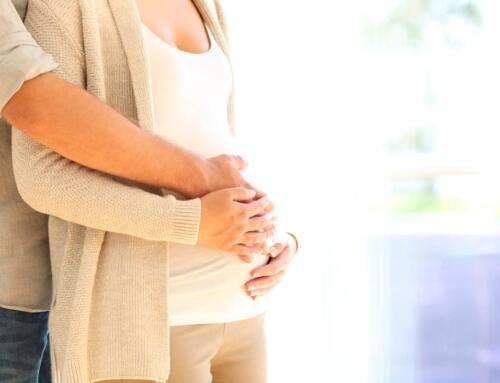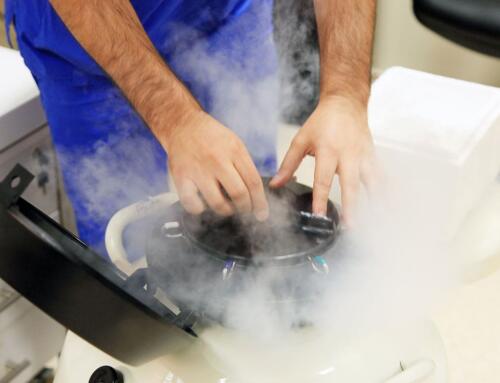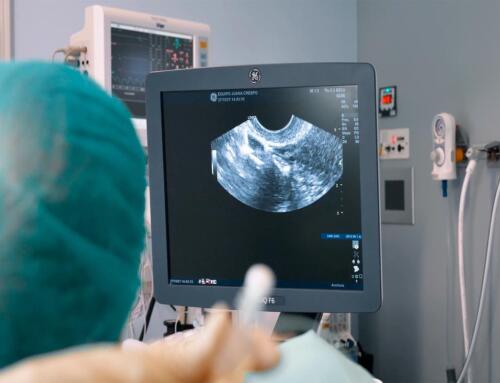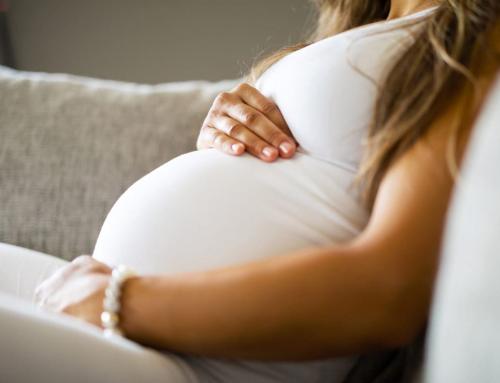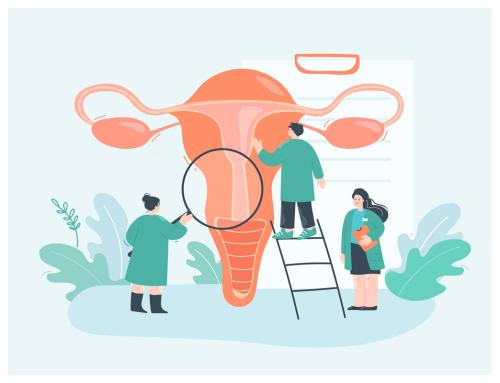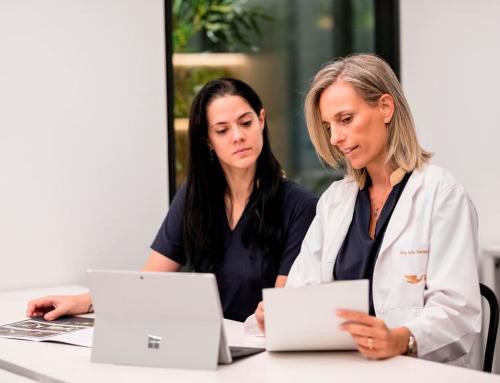If you have been diagnosed with low ovarian reserve, do not worry and think that pregnancy will be an impossible mission for you.
The most important thing is that you don’t waste a minute and put yourself in the hands of professionals of reproductive medicine. At Equipo Juana Crespo we can help you become a mother with a low ovarian reserve through a personalised treatment.
What does it mean to have a low ovarian reserve?
A low ovarian reserve is a sooner than expected decrease in the number of eggs in the ovaries.
Each woman is born with a certain number of eggs and, as the years go by, this reserve is depleted. Thus, every woman, at some point, will have a low ovarian reserve that will lead to menopause and the inability to become pregnant with their own oocytes.
Therefore, having a low ovarian reserve at 45 is not uncommon, but it can be an unpleasant surprise if you are only 30 and interested in having children.
However, having fewer eggs does not mean that it is impossible to get pregnant with your own eggs. In this case, it is important to be aware of your oocytes’ quality and how to take care of them. It is true that there is a direct relationship between infertility and a low ovarian reserve (because when there are fewer eggs, the quality tends to decrease), but this is not always the case.
At Equipo Juana Crespo we are specialists in complex cases of infertility. Many of our patients have managed to become mothers over the age of 40 and with a low ovarian reserve. In our clinic, we know the importance of each egg and embryo. That is why we will use all our resources and efforts to find the best solution for you.
What are the causes of a low ovarian reserve?
- The main cause is ageing, as the ovarian reserve naturally decreases over the years. Therefore, many women who delay pregnancy are faced with this problem.
- Endometriosis, autoimmune diseases, surgery near the ovary or chemotherapy treatments can also cause a low ovarian reserve.
- Stress, smoking and a diet low in antioxidants cause our cells, and our ovaries to age.

How is a low ovarian reserve diagnosed?
To measure and assess your ovarian reserve, we will take into account all your personal characteristics: from your age or medical history, to any possible genetic factor. In addition, we will perform the necessary complementary tests:
-
Blood analysis
Performed between days 2 and 4 of the cycle, this analysis helps us to know the values of the different hormones:
-
- The FSH (Follicle Stimulating Hormone): this is responsible for stimulating the maturation of the oocytes. When there are few eggs left, this hormone increases to stimulate the few remaining ones more. Therefore, the higher it is, the less reserve there is.
- Oestradiol: among the functions of this important estrogen is activating the LH hormone, which will be responsible for producing ovulation and preparing the endometrium to facilitate the implantation of the embryo. Its levels, together with the other tests, will help us to assess the ovarian reserve.
- LH (lutropin): This hormone is responsible for triggering ovulation and ordering progesterone to favour implantation when pregnancy occurs.
-
Anti-Mullerian Hormone (AMH) Test
This is a much more reliable marker and can be measured at any given time of the menstrual cycle. This hormone, produced by the ovarian follicle, is an indicator proportional to the production of the ovary. In other words, the greater the presence of the anti-Mullerian hormone in the blood, the greater the available ovarian reserve.
-
Antral follicle count
This is the third factor to take into account when quantifying the available eggs. By means of a vaginal ultrasound scan, on approximately day 3 of the cycle, the number of follicles seen in each ovary is counted. Generally, the best of them will be the one that will mature and wait in the tubes to be fertilized.
This ultrasound scan is one of the best ways to assess the ovarian reserve, since it allows our specialists to observe the antral follicles that the ovary has recruited in that menstrual cycle.
It is important that this ultrasound scan be always performed by an expert gynecologist, since sometimes it is not easy to find all the follicles of each egg.
How to become a mother with low ovarian reserve
In this case, time is not in your favor.
The ovarian reserve will gradually decrease, so you should not be late in starting your treatment. In general, we do not usually recommend that patients who have a low ovarian reserve begin with artificial inseminations, as these have a lower success rate than an IVF treatment.
The most recommended treatment for low ovarian reserve is in vitro fertilization (IVF), unless the reserve is totally exhausted, there are either no follicles or an early menopause. In the latter cases, the most effective treatment would be egg donation, that is, using the egg from a donor and fertilizing it with the ICSI technique.
The importance of a customized strategy
IVF is the indicated treatment for low reserve, but you may wonder if having a low ovarian reserve will also be a low responder to the stimulation of the treatment.
At Equipo Juana Crespo we distinguish the low-responder woman due to her age from the younger patient who has a low ovarian reserve and we carry out very personalized treatments.
- We select your optimal cycle
Our personalized stimulation protocol allows us to decide which is the most appropriate month to extract your eggs. Thus, before starting a cycle, we evaluate the hormones and perform an ultrasound to see the antral follicles. Taking into account your profile, we can define if a given month is the best one to develop the stimulation. If it is not, we then wait for the next cycle before starting treatment.
We make the cycle selection from the hormonal and morphological point of view of the oocytes and the functionality of the follicles. These personalized protocols allow us to determine the best cycle to obtain your best embryos.
- We take individual care of each embryo
In the laboratory, each embryo is also given a personalized treatment. Not all embryos are the same and each one needs special care in the culture media. When we have many embryos, we must know how to select them, but when we have few, we must know how to take care of them.
To ensure that the transfer takes place in the most ideal conditions, we prepare your endometrium with the appropriate thickness. This continuous and meticulous work is essential to get the best out of the embryo and to ensure its maximum implantation and evolution.
If you have been diagnosed with low ovarian reserve or you have undergone an IVF without success in another clinic due to low ovarian response, please contact our team specialized in cases of high complexity. Call us at 961 042 557 or write to info@juanacrespo.es and you can book your first visit.



